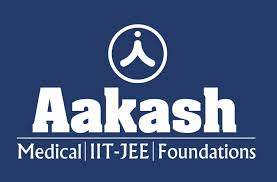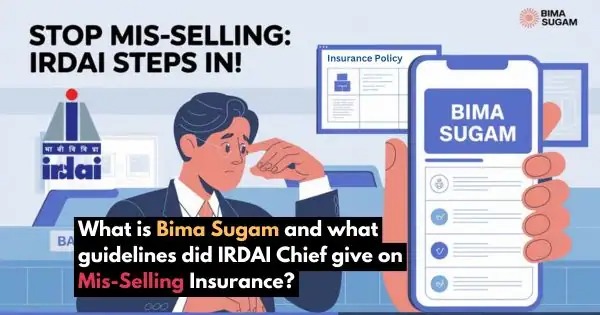R. Mala, J.@mdashThis Second Appeal has been filed by the plaintiff against the judgment and decree of the learned III Additional Subordinate Judge, Madurai, dated 29.11.2004 in A.S. No. 52 of 2002 modifying the decree and judgment made in O.S. No. 76 of 2000, dated 11.07.2001 on the file of the District Munsif, Madurai Taluk. The gist of averments in the plaint is as follows:
On 15.11.1985, the defendants have borrowed a sum of Rs. 9,000/- from the plaintiff and agreed to repay the said amount with 12% interest per annum on demand and they executed a promissory note. The second defendant has deposited the title deed by way of creating equitable mortgage. In spite of several demands, the defendants failed to repay that amount. Hence, the plaintiff has come forward with the suit for recovery of amount due on a mortgage and prayed for a preliminary decree of mortgage.
2. The gist and essence of Written Statement filed by the first defendant and adopted by the second defendant is as follows:
The suit is not maintainable both in law and on facts. The defendants never borrowed Rs. 9,000/- and executed the promissory note. The plaintiff also no capacity to lend such a huge amount at the time. The suit promissory note is not supported by consideration. The suit promissory note has been fraudulently created. The rate of interest is excessive. The second defendant created equitable mortgage by way of depositing title deed is false and baseless. The documents were given to the plaintiff since she opted to purchase the suit property, the plaintiff retained the documents though she could not purchase the suit property. The second defendant never executed a memorandum of deposit of the title deeds. That document is forged and fabricated one. The suit is barred by limitation and in order to get over the provisions of Limitation Act, the plaintiff has fabricated the deposit of title deeds on forged papers and illegally retained the documents. Hence, he prayed for dismissal of the suit.
3. The learned District Munsif, Madurai Taluk after considering both the Plaint and Written Statement had framed eight issues and considering the oral evidences of P.W. 1, D.W.1 and documents Exs.A1 and A2, passed a preliminary decree for mortgage. Against that, the defendants have preferred an appeal. The first appellate Court after considering the averments and hearing the arguments of both counsel, has framed one point for consideration and modifying the decree in respect of passing preliminary decree of mortgage converted as a simple money decree and both the parties were directed to bear their own cost. Against that, the plaintiff as the appellant has preferred this Second Appeal.
4. The substantial questions of law arises in the Second Appeal are as follows:
1. Whether the lower appellate Court has erred in holding that the suit transaction is only a money transaction and not based upon creation of equitable mortgage?
2. Whether the lower appellate Court has erred in holding that the second defendant has not deposited the title deeds with an intention to create an equitable mortgage ?
3. Whether the lower appellate Court erred in holding that the suit transaction is only on the basis of the execution of promissory note Ex. A1?
4. Whether the lower appellate Court''s finding is perverse on fact as per the judgment reported in 2005(2) MLJ 10 SC?
5. Points 1 to 4: The appellant as a plaintiff had filed a suit for recovery of money due on an equitable mortgage. The trial Court after framing necessary issues, decreed the suit and passed a preliminary decree for mortgage. Against that, the respondents herein as appellants preferred an appeal before the first appellate Court and the first Appellate Court has held that the suit is not based on an equitable mortgage and it is based on promissory note, Ex. A1 and modified the judgment and decree of the trial Court and passed a simple money decree. Against that, the present Second Appeal has been preferred by the plaintiff/appellant herein.
6. The main point for consideration is whether the respondents herein had an intention to create an equitable mortgage by way of depositing the same on the date of execution of Ex. A1 i.e. promissory note on 15.11.1985. The respondents herein have raised a different defence stating that they never borrowed the amount. The appellant herein has not having any financial capacity to lend money and he has not deposited the title deed with an intention to create an equitable mortgage. They have given a sale deed to the appellant, since the appellant wants purchase the properties stands in the name of respondents herein. They also raised the plea that they have not executed any memorandum of depositing of title deed. Hence, he pleaded suit is barred by limitation.
7. The learned trial Court has considered the oral and documentary evidence and came to the conclusion that the suit is based only Ex. A2, which has been deposited with the intention to create an equitable mortgage.
8. At this juncture, this Court has to consider the oral evidence of defendants. Even though the respondents/defendants herein have denied the execution of the promissory note Ex. A1 and deposited the title deeds, Ex. A2. In chief examination, D.W.1 himself fairly admitted that he has executed Ex. A1 and he has also fairly conceded that he has not handed over the sale deed to the appellant herein for the purpose of sale. In his chief examination, he has stated as follows:
So, the above submission is totally contra to the defence raised in the written statement. While considering the Chief and cross examinations, he has only pleaded discharge. It is well settled principle of law that discharge to proved by the person, who pleaded the same i.e. defendants herein. But, they have not proved the same. So, the trial Court has come to the correct conclusion that the discharge has not been proved by the defendants/respondents herein and the sale deed Ex. A2 has been deposited to the appellant for the purpose of purchasing the property. So the trial Court has come to the correct conclusion that Ex. A2 has been given to the appellant on the date of the loan obtained by the respondents herein by way of depositing the same with an intention to create an equitable mortgage.
9. At this juncture, the learned appellant counsel states that the first appellate Court has come to the incorrect conclusion that the properties of the appellant/plaintiff are the adjacent one of the respondents/defendants. Hence, it is possible for the appellant herein to purchase the same and hence he received the sale deed and the respondents handed over to appellant on the oral evidence of D.W.1. While considering the arguments along with the deposition of D.W.1, this Court has to come to the conclusion that the findings of the first appellate Court in Paragraph Nos. 10 and 11 are perverse. He relied upon the decision reported in 2005(2) MLJ 10 (M/s. Dale and Carrington Investment (P) Limited and another Vs. P.K. Prathapan and others) and culled our the following portion:
Perverse finding of fact can be set aside in appeal since perversity of finding itself becomes a question of law.
While, this Court considering the paragraph Nos. 10 and 11 of the first appellant Court''s judgment, the findings is perverse. So, the second appeal is maintainable.
10. Since the D.W.1 himself admitted that he never handed over the Ex. A2 to the plaintiff for selling of the property to the plaintiff, it is the duty of the respondent to prove that for what purpose, he handed over the Ex. A2 to the appellant herein. In his chief examination, he has stated that he handed over the Ex. A2 and other relevant documents. But, without evidence, the same is not acceptable. Because no prudent man can hand over his title deed to the third party without any reason and rhyme. In such circumstances, the evidence that he handed over the Ex. A2 and other documents to the appellant without any reason is unacceptable one. Hence, the above circumstances have clearly proved that the respondents herein have deposited the Ex. A2 with the intention to create an equitable mortgage for the loan raised by him from the appellant as per Ex. A1.
11. At this juncture, the learned appellant counsel would relied upon the decision reported in AIR 1965 SC 91 (The United Bank of India Limited Vs. M/s. Lekharam Sonaram & Co. and others) and arguing that the essence of a mortgage by deposit of title deeds is the actual handing over by a borrower to the lender of documents of title to immovable property with the intention that those documents shall constitute a security which will enable the creditor ultimately to recover the money which he has lent. So, the above circumstances, the above decision is applicable to the facts of this case. He also relied upon the another decision reported in 80 L.W 483 (The Chief Controlling Revenue Authority, Madras V. Messrs. Pioneer Spinners Pte. Ltd. a company having its registered office at Shencottah) and culled out the following portion:
A mortgage by deposit of title deeds does not require any writing in law. Besides the deed and the deposit, what is required is an intention that the deeds shall be security for the debt.
While considering the above citation, a mortgage by deposit of title does not require any writing in law, what is required is an intention that the deeds shall be security for the debt. Here, as already discussed as per the evidence of D.W.1, he has given a contra evidence against the defence raised in the written statement. Even though, in his written statement, he has stated that he handed over the Ex. A2 only for the purpose of sale negotiation. But in the chief examination, he has candid admission that he does not hand over the sale deed for the purpose of sale negotiation, but he handed over the documents, which has clearly proved. He also admitted that he executed Ex. A1 and receive the amount. But, he pleaded discharge.
12. In such circumstances, this Court has necessarily come to the conclusion that Ex. A2, the sale deed has been deposited by the respondents with the intention to create an equitable mortgage. Hence, the first appellant Court has committed error and came to the conclusion that there is no intention to execute the equitable mortgage. So, the judgment and decree of the first appellate Court is set aside and the judgment and decree of the trial Court is restored and accordingly, the substantial questions of law are answered in favour of the plaintiff/appellants herein. In the result, the Second Appeal is allowed. The judgment and decree dated 29.11.2004 passed in A.S. No. 52 of 2002 by the learned III Additional Subordinate Judge, Madurai is set aside and the judgment and decree dated 11.07.2001 made in O.S. No. 76 of 2000 by the learned District Munsif, Madurai Taluk is restored and confirmed. The defendant is directed to pay the cost throughout. Time for payment is three months.

